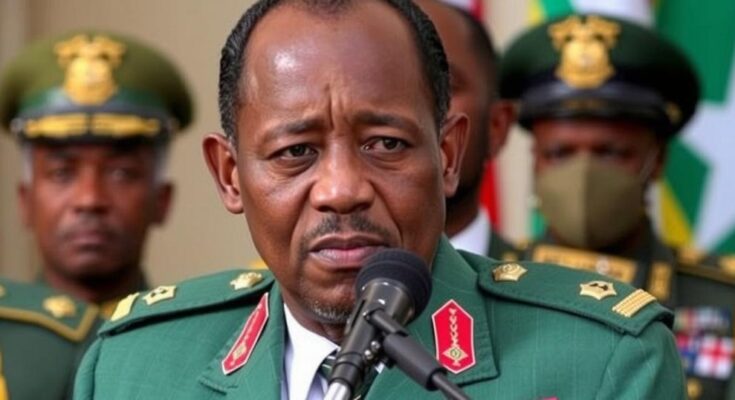President Salva Kiir of South Sudan has dismissed key officials, including the army chief of staff and the governor of the central bank, amidst ongoing instability. Gen. Paul Nang Majok is the new army chief, while Johnny Ohisa Damian returns as central bank governor. Further changes were made in police and finance leadership, although explicit reasons for these reassignments were not provided.
On December 9, 2024, South Sudan’s President Salva Kiir implemented significant leadership changes within the military and banking sectors. Among the announcements made via South Sudan Broadcasting Corporation, Gen. Santino Deng Wol was dismissed as the army chief of staff, with Gen. Paul Nang Majok assuming command of the military. Furthermore, the president appointed Gen. Wok as the Undersecretary in the Ministry of Defense and Veterans Affairs, succeeding Atak Santino Majak.
In the realm of finance, President Kiir relieved James Alic Garang Alic from the role of governor of the Bank of South Sudan, placing Johnny Ohisa Damian in this pivotal position. Notably, Mr. Ohisa had previously held the office before his reappointment on the same day. Additionally, Gen. Abraham Peter Manyuat was appointed as the new Inspector General of the South Sudan Police Service, taking over from Gen. Atem Marol Biar. The financial ministry also saw changes, with Garang Majak dismissed as the first undersecretary and Arop Nuoi Arop designated as his successor.
The decrees outlining these changes did not provide specific reasoning behind the dismissals and appointments across these key sectors. It is worth mentioning that this reshuffle comes on the heels of President Kiir’s directive for an investigation into a recent violent incident involving the former intelligence director Gen. Akol Koor Kuc, during which four individuals lost their lives, and several others sustained injuries. However, it remains uncertain if the alterations in military leadership are in any way connected to the events surrounding Gen. Koor’s residence.
South Sudan, the world’s youngest nation, has faced a myriad of political and economic challenges since its independence in 2011. Frequent changes in military and financial leadership have been common as the government attempts to stabilize the nation amid ongoing conflict and economic turmoil. In recent months, incidents of violence and instability have prompted President Kiir to reassess key positions, particularly in the military and banking sectors, which are critical for national security and economic management.
The recent firings and appointments made by President Salva Kiir underscore ongoing instability within South Sudan’s military and banking sectors. With significant figures dismissed without publicly stated reasons, the political landscape remains precarious. The government’s response to recent violent incidents, including a deadly shootout linked to a former intelligence director, may also influence future decisions and structural adjustments within these essential public sectors.
Original Source: sudantribune.com




